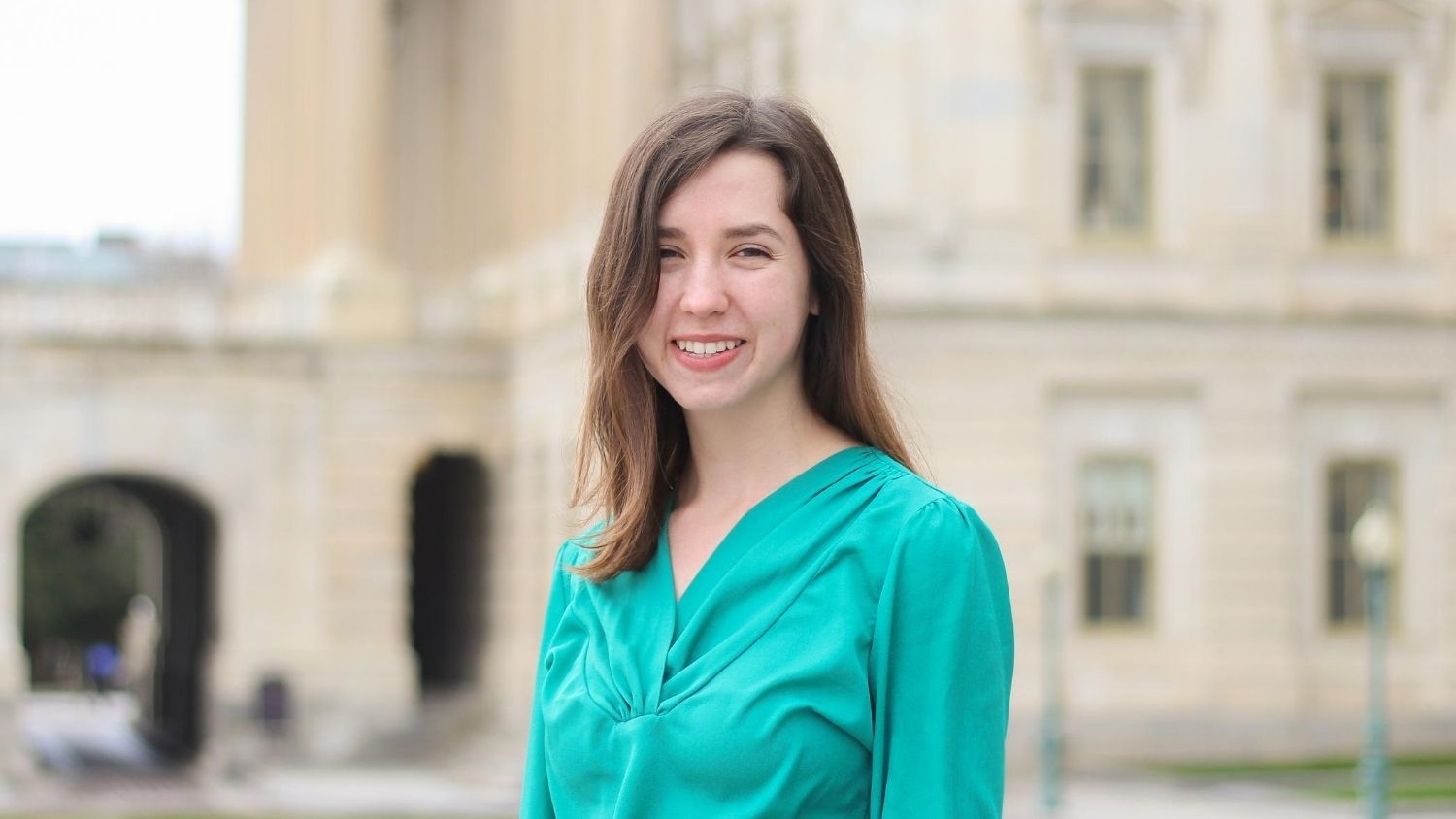Connecting Environmental Youth Summits to Increase Impact

Lauren Gibson is a Ph.D. student in the Environmental Education Lab at NC State’s Department of Parks, Recreation and Tourism Management. She was recently named a National Geographic Young Explorer, one of only 22 people around the world to receive the award in the spring of 2020. The initiative highlights young people between the ages of 16 and 25 who are tackling challenging world issues and creating a sustainable future. Together, they make up #GenGeo.
Throughout her work, Lauren aims to harness the power and energy of young people and connect them to environmental education. Her #GenGeo project will address the lack of connection between environmental youth summits across the United States.
Youth play a powerful role in environmental issues, something that many organizations have begun to realize. The result has been an increase in environmentally focused youth summits, but with a lack of communication between them.
Lauren’s project will connect youth and adult representatives from youth summits across the U.S. through monthly virtual meetings and a day-long, in-person meeting. Her goal is to “foster connections between environmental youth summits through a national community of practice,” she said.
She’ll work with participants of the program to find the most effective practices and communicate the findings with the help of her project partners: the North American Association for Environmental Education (NAAEE), the National Oceanic and Atmospheric Administration (NOAA) and The Wild Center.
Lauren is also creating her own youth summit as part of her work with NOAA’s Office of Education. She said it will allow teens to “build ocean conservation skills and plan out their own ocean-related action projects to carry out in their home community.”
But her work doesn’t stop there. In 2016, Lauren was named one of NAAEE’s Environmental Education 30 Under 30, and she recently received a Changemaker Grant from the program. She’ll use it to train 20 North Carolina high school environmental science teachers in implementing a curriculum centered around water quality and community action.
“We’re training high school environmental science teachers to implement this curriculum, which teaches students about water quality and culminates in the students designing and leading a community-engaged action project related to water quality,” she said.
Lauren will study how the projects ultimately impact the community’s reaction to water quality issues.
Young people have the power to make a difference and Lauren wants them to know that. “When I first got started with environmental work, I was a shy middle schooler,” she said. “Taking concrete action to help the environment skyrocketed my confidence and helped me see the power I had to change my community for the better. I’m excited to have the opportunity to facilitate that same sort of growth in other young people.”
This post was originally published in College of Natural Resources News.
- Categories: